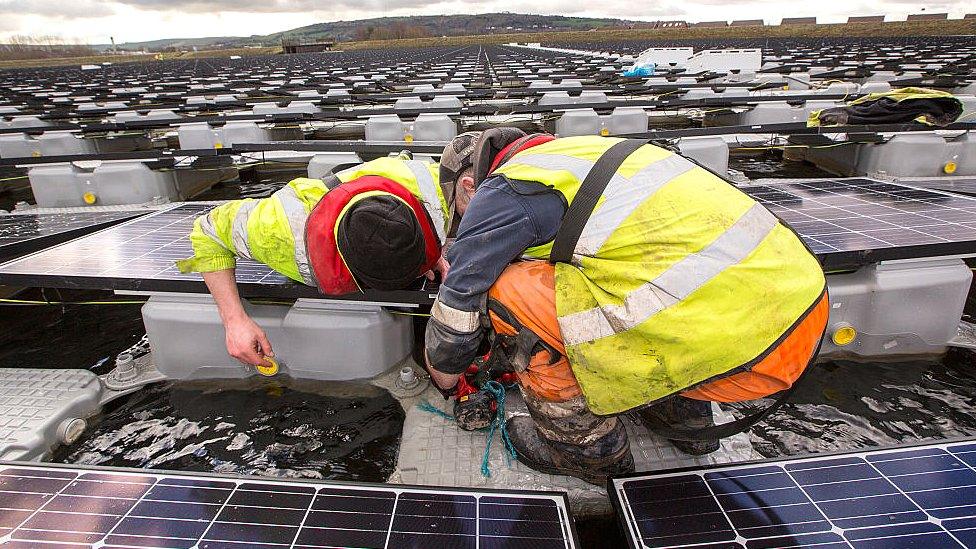Climate change: What help can you get to go green?
- Published

If the UK is going to cut its greenhouse gases to almost zero by 2050, as recommended by a Committee on Climate Change report, it will need businesses and ordinary people to make some big changes.
The government has run various schemes to help people make their homes more energy efficient over the years, although some have stopped running since 2015.
So what help is still available if you want to go green?
Renewable energy
If you want to power your home using energy from renewable sources, instead of relying on fossil fuels, you could install solar panels or even a small-scale wind turbine.
In most cases you should not need to get planning permission.
Until last month, people generating solar or wind power at home could receive money for doing so, by applying to the government's Feed-in Tariff (FIT) scheme.
The scheme was made up of two payments made by energy suppliers:
A "generation payment" - a fixed amount of money for every kilowatt hour of electricity generated
An "export payment" - for solar panel and wind turbine owners selling any extra units they generate, but do not use, back to their energy supplier
This scheme is now closed to new entrants, although people already taking part can carrying on receiving payments.
The government has proposed a new scheme to replace the FIT called the Smart Export Guarantee. This will only replace the "export payment" part of the current system.
The Domestic Renewable Heat Incentive scheme is designed to help with the costs of installing a renewable heating system.
Property owners can apply for funding to set up systems including solar panels, biomass boilers and certain types of heat pump.
A similar scheme is run separately in Northern Ireland.
In Scotland, the Home Energy scheme also offers interest-free loans of up to £17,500 to install renewable energy systems.
Insulation
Good insulation stops heat escaping, meaning less energy is needed to keep a property warm.
In England and Wales, people on lower incomes can apply for help under the government's Energy Company Obligation scheme.
This puts a duty on larger suppliers to install energy-saving measures, including insulation and more efficient boilers, in the homes of people who are claiming one of a list of benefits.
This is available to homeowners and to tenants with the permission of their landlords.
The Warmer Homes scheme in Scotland does a similar thing, and is funded by the Scottish government.
In Northern Ireland, households with an income below £20,000 can apply to the government-funded Affordable Warmth scheme for a tailored package of energy-saving measures.
People with incomes below £40,000 with older, inefficient boilers in Northern Ireland can also apply for a grant of up to £1,000 to replace them with energy-efficient models.
Electric cars
Electric car owners do not have to pay vehicle excise duty unless their car is worth more than £40,000 and registered after 31 March 2017.
They can also apply for a grant of a maximum of £500 to cover the costs of installing a charging point at home.
Late last year, the government scrapped a grant for new plug-in hybrids, which still partly rely on petrol, and reduced discounts on all-electric cars from £4,500 to £3,500.
The Renewable Energy Association believes this is a positive step, though, since it is designed to shift support away from hybrids to completely battery-powered cars.



- Published2 May 2019
